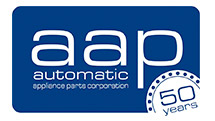Are Home Appliance Repairs Tax Deductible?
You Are Here: Home > Automatic Appliance Parts Blog > Are Home Appliance Repairs Tax Deductible?
*** Please be aware that Norridge is the only shipping facility. Inventory on-hand at all other branches is unavailable for immediate shipment. ***
When tax time rolls around, many homeowners start to look for ways to save money on their total tax bills. There are plenty of deductions out there to take advantage of, but you should know what items are and aren't legally tax deductible. When, how, and if you get a tax break on improvements you make around your home all depends on the type of improvement. Either way, it's imperative to keep track of your expenses throughout the year in order to help determine tax deductibility when it comes time to prepare your taxes.
Are Home Appliance Repairs Tax Deductible?
If you've made repairs to home appliances, you may be asking yourself whether or not the expense of those repairs is tax deductible. The answer depends on the use of the home where those appliances are located. If you had repairs done to appliances in your primary residence, you're not entitled to any tax benefits from the repairs. The IRS views repairs as a means to keep your home in good working condition. You must add a substantial increase to your home's value to qualify for tax benefits, such as with home improvements.
There are two exceptions to home appliance repairs qualifying as a tax deduction. The first would include appliances repaired in a rental property. If you're a landlord and you're required to fix the appliances of your rental unit, you are allowed to count that cost under repairs expense on your taxes. This amount is recorded on Schedule E of Form 1040 on line 14 for maintenance repairs.
The second exception applies to those taxpayers who have a home office. To qualify for home office deductions as a homeowner, you must have a part of your home exclusively dedicated to your legitimate home business. Then, if the repairs are to an appliance kept in your home office as part of the business, you can deduct 100% of the cost of repairs. If the appliance that needs repairs serves the entire house, including your home business, you may deduct a portion of the repair bill based on the percentage of your home you use for your home office.
It's important to maintain your home appliances to avoid the high cost of repairs. Although repairs to appliances in your home may not eligible for tax benefits, let's look at a few other home improvements that you may be able to deduct from your taxes.
What Types of Home Improvements are Tax Deductible?
The IRS defines home improvement as work done to your home to increase your property's value substantially. There are many ways to increase your home's value, including upgrading your wiring or plumbing, landscaping, fencing, upgrading a kitchen or bathroom, redoing your roof, and adding on additional rooms or a garage. It's important to note that while these home improvements may reduce your taxes, you're not allowed to deduct the amount spent on the improvements on your income taxes in the year you make the improvements. You'll need to keep track of those expenses as they may reduce your overall taxes paid out when you sell your home.
These types of home improvements are called capital improvements, and they are added to the tax basis of your home. The tax basis is subtracted from the selling price to determine your profit upon the sale of your home. This tax basis is essential because the current law states that if you have owned your home and lived in it for at least two out of five years prior to the sale, the first $250,000 profit is tax-free for single filers, with that set at $500,000 for married couples filing a joint return. The tax basis is a total of the home's original cost, including fees and purchase price, plus the cost of any improvements made during the time you owned the home. This total is then compared to the sales price to determine your profit, and how much of that profit is taxable.
Home improvement costs can't be deducted from your taxes, but there are instances where you can depreciate those expenses, or deduct the cost over several years. If you qualify for a home office deduction, you can depreciate the cost of upgrades based on the location of those improvements. If the improvements benefit your home office only, then 100% of the price can be depreciated as a business expense. On the other hand, if the improvements benefit the entire house, you may depreciate a portion based on the home's percentage occupied exclusively by your home office.
You may also depreciate the cost of home improvements if you rent out a portion of your home. You can then depreciate the expense as a rental expense and deduct it from the rental unit's income. The same rule applies to percentage here as it does to home office expenses. If the home improvement solely benefits the rental space, then 100% may be depreciated, but if the entire house benefits, then it's based on the percentage of the area the rental takes up.
How Do You Prepare for Home Improvement Tax Benefits?
As soon as you purchase your home, start a folder or shoebox for receipts related to any and all home improvements. This strategy will get you in the habit of saving important documents that may benefit you when you decide to sell your home. If you keep excellent records, including receipts, you'll be better prepared to take advantage of every tax benefit you can qualify for at the time of filing, which may be years down the road. A good record-keeping system can make a huge difference to homeowners when it comes to tax time.
Another way to make the most of the money you invest in home improvements is to put some planning into them. Look at what will potentially increase your home's value the most substantially and decide which improvements to make first based on this potential increase.
Your home is an investment, and while not everything you do to repair or improve your home can be deducted from your taxes, there are other ways to save money. You can take steps to maintain your appliances to keep them in good working order. And, when that doesn't work, you can turn to Automatic Appliance, serving the Midwest with seven retail locations that can find and ship even the hardest-to-find OEM parts to service your appliances.

 Shopping Cart [empty]
Shopping Cart [empty]









